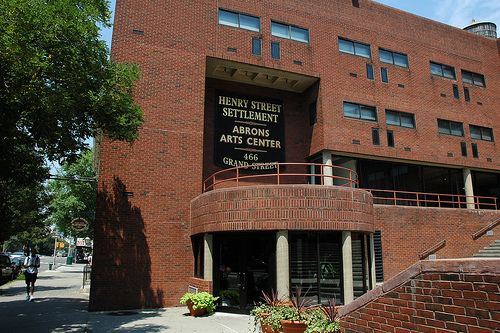New York City’s experimental and rather irreverent Abrons Arts Center turns 100 years old, with an ordained Episcopal priest at its helm – artistic director Jay Wegman, who was canon for liturgy and the arts at the Cathedral of St. John the Divine prior to his work at the Abrons.
A New York Times feature describes Wegman as “a little naughty and very, very nice, Mr. Wegman has a thunderous laugh and an unexpectedly profane vocabulary.” He was hired in 2006 to do some revisioning at the center, whose roots go back to 2015 when two sisters, Alice and Irene Lewisohn, opened the modernist Neighborhood Playhouse, now the Henry Street Playhouse.
Mr. Wegman’s twinned vocations are less opposed than they may seem. Even now, he describes the Chelsea performance space the Kitchen as “the Vatican” of the downtown scene, and he believes artists grappling with grand themes are pursuing “another form of theology.” He finds theatricality in the “smells and bells” of the Episcopalian service and when he attends plays, he seeks transcendent experiences, “totally raising me up to somewhere I’ve never been.” He pointed to the finale of “A Chorus Line” (“One Singular Sensation,” with the mirror) as one example.
As part of the center’s 100th year, MacArthur Fellow Basil Twist has created a show about the two women who founded the playhouse: Sisters’ Follies: Between Two Worlds.
On a recent evening at Abrons, neighbors were picking up boxes of fruits and vegetables from their community-supported agriculture shares in the outdoor amphitheater while sculptures made from lights, coiled metal and old VHS tape glinted in the lobby. In the Underground Theater, a crowd exiting a dance performance drank wine and ate green tortilla chips. Two women were rehearsing intently in the Experimental Theater above them.

